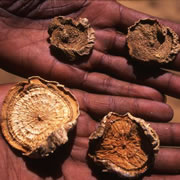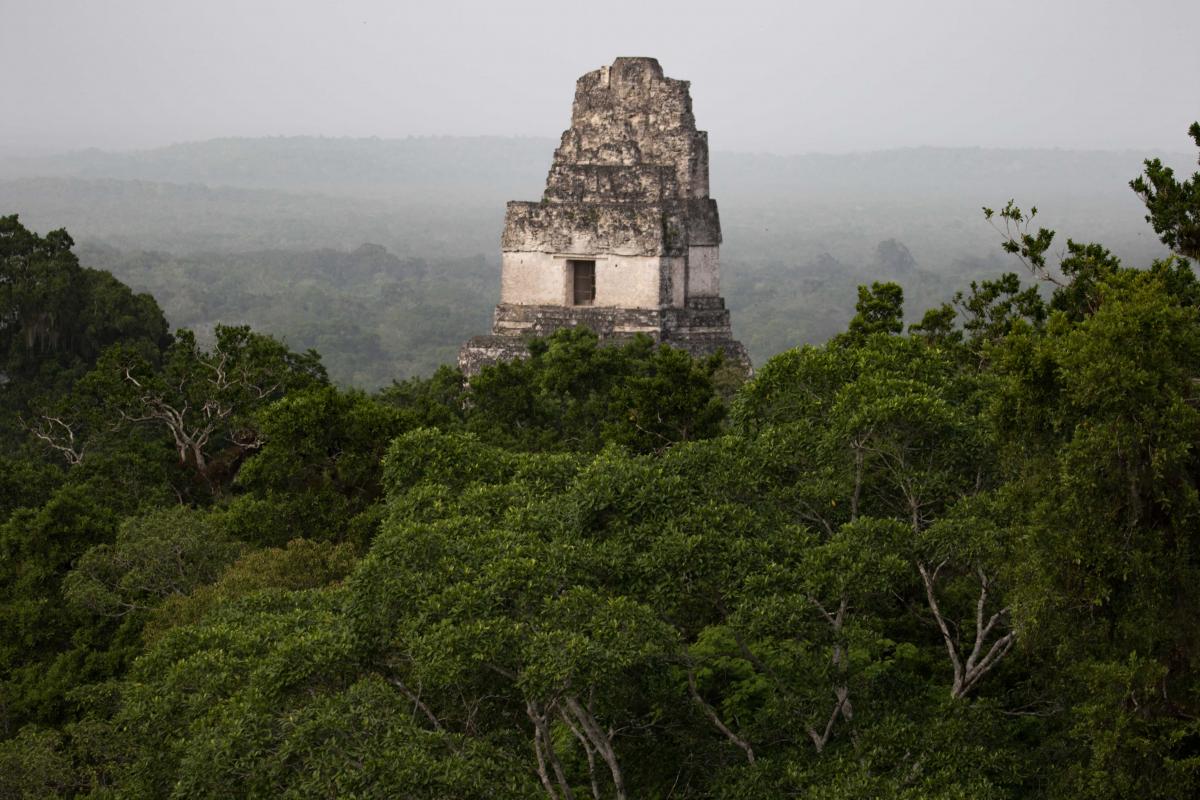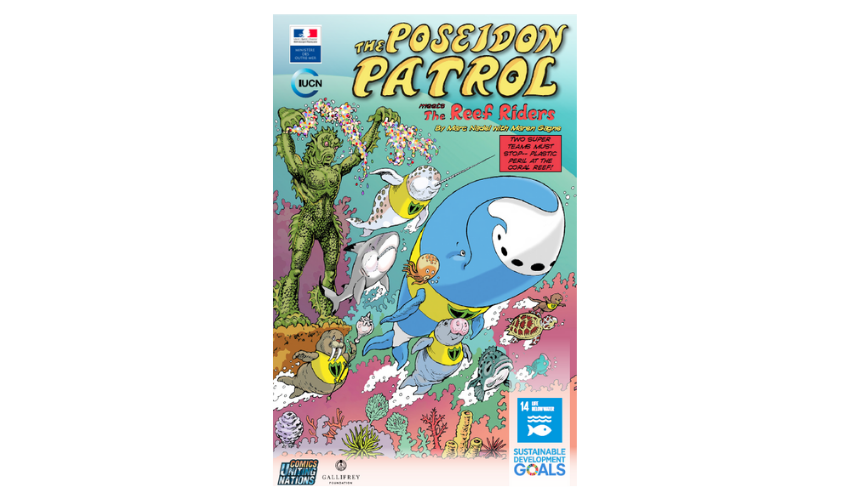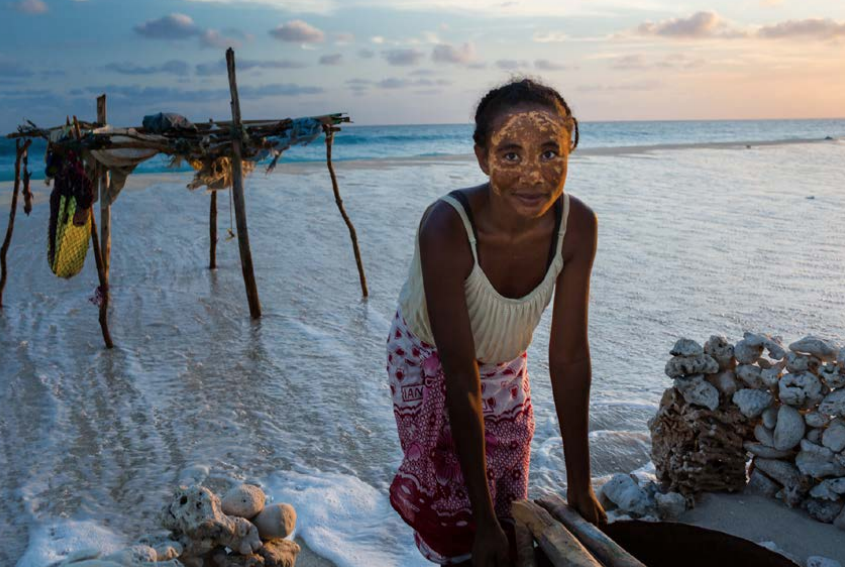Drylands contribute more to the economy than previously recognized
A series of case studies by the World Conservation Union (IUCN) has revealed the economic contribution of drylands needs to be revalued

Photo: IUCN Photo Library © Brigitte Schuster
Drylands are not wastelands. That is the message from the World Conservation Union (IUCN), which is calling for the contributions of drylands to national and international economies to be revalued.
Recent case studies have shown that pastoralist economies need to be better accommodated in national development planning. In the vast dry region of Agadez in Niger, for example, pastoralism represents the main source of cash income to households (46%). Almost half of this value, in turn, can be attributed to wild fodder from extensive grazing. The value of some other non-timber forest products collected from drylands is estimated at more than 7% of national GDP, almost double the value reported in official national accounts.
Joshua Bishop, IUCN’s Senior Economic Adviser, said: “Many direct use values, such as the provision of fuel wood, fodder and traditional medicines, are either not estimated or are seriously under-valued in official economic statistics, leading to neglect by policy-makers and under-investment in sustainable management”.
In another example, Kgalagadi District, in the southwestern corner of Botswana, constitutes about 10.5% of the country’s total area. The district has an average annual rainfall of 150mm in the south to 250mm in the north, however the rain is very erratic and the region is subject to periodic drought.
Based on the study results, dryland ecosystem services in the Kgalagadi District contributed a 191,260 USD to Botswana’s Gross National Income in 2006. This is a significant contribution considering the low population density and the levels of poverty in the district. Of this, almost 50% came from wild plants, such as the medicinal plant Devil’s Claw (Harpagophytum spp). In terms of net annual private profit, the largest contribution to household incomes was from livestock production (1,124 USD per household) followed by the utilization of wild plants (USD 270 per household). However, it was found that livestock production contributed little to the asset value of the study area, since it generates minimal economic rent.
Masego Madzwamuse, Regional Development Officer for IUCN Southern Africa, said: “The Botswana study raises some fundamental challenges for national and economic planning. Local populations, for instance, derive no formal benefits from their knowledge on medicinal plants through patents or royalties. At the same time, veldt product markets are not formalized and remain underdeveloped and invisible in formal land use and investment plans at national and district levels.
“Our study also revealed a failure to pay attention to gender roles. Village institutions generally support male dominated livelihood strategies such as cattle farming thus contributing to greater poverty of female headed households.”
In Kenya, the national livestock herd has been estimated at 33.4 million head, with 46% of this herd (or 15.2 million livestock) kept by pastoralists. Pastoral livestock holdings have a capital value of approximately USD860 million with an annual off-take for meat and hides worth about USD69.3 million for both subsistence and sale. As pastoralists in Kenya generally manage livestock for milk not meat, the total value of the milk production from the drylands (approximately USD134.6 million per annum) is nearly twice that of the value of slaughter off-take.
Edmund Barrow, Forest and Dryland Conservation and Social Policy Coordinator for IUCN Eastern Africa, said: “The Kenya study shows the need to better accommodate pastoralist economies in national development planning. For instance there is a need to strengthen local livestock markets and to add value to dairy products. Fuel wood and charcoal contribute 99.3% of the energy in the Turkana District in Kenya, representing nearly 80,000 tons of fuel wood with a value of about USD2.9 million per year. These figures are similar for other dryland areas. Realistically it will take some time (even decades) for alternative energy sources to replace fuel wood. We thus have to provide adequate policy and development interventions that provide incentives for sustainable dryland restoration.”
Joshua Bishop, IUCN’s Senior Economic Adviser, said: “Given that the majority of the people living in drylands are among the poorest of the world, there is a need to better account for the value that dryland ecosystems contribute to national and international economies and to plan development interventions accordingly:”
Marc Garreau, Regional Programme Coordinator, IUCN West Africa, said: “Some of the Poverty Reduction Strategy Papers, like the one in Niger, make already an explicit link between poverty and the environment. The challenge is now to act accordingly – so far only 2% of the funds for the PRSP are earmarked for the environmental sector.”
Edmund Barrow said: “This is especially important given that we cannot expect a green revolution in drylands. Dryland ecosystems are constrained by erratic and variable rainfall, but if we build on the traditional knowledge and risk strategies of local people and reward them for their contribution to maintaining nationally and globally important ecosystem services such as soil conservation, climate regulation or carbon sequestration, we can improve their livelihoods and fight poverty while improving their risk management strategies.”
Notes to editors
Link to full case studies:
- “The Real Jewels of the Kalahari: Drylands Ecosystem Goods and Services in Kgalagadi South District, Botswana” by Masego Madzwamuse, Brigitte Schuster and Bertha Nherera. The World Conservation Union (IUCN); South Africa 2007.
English [PDF - 534 KB]
- “Kenya’s Drylands – Wastelands or an Undervalued National Economic Resource” by Edmund Barrow and Hezron Mogaka. The World Conservation Union (IUCN); Kenya 2007.
English [PDF - 861 KB]
- “A preliminary assessment of the economic value of the goods and services provided by dryland ecosystems of the Aïr and Ténéré (Niger)” by Abdoulaye Zonon. The World Conservation Union (IUCN); Burkina Faso 2007.
English [PDF - 481 KB]
For more information or to set up interviews, please contact:
Currently at the UNCCD COP8, Spain:
Edmund Barrow, Coordinator, Forest & Dryland Conservation, and Social Policy, IUCN Eastern Africa Regional Office, Nairobi; Mobile: +353-870-540797,
Email: Edmund.Barrow@iucn.org; Web: EcosystemsIn Switzerland:
Sarah Halls, IUCN Media Relations Officer, Tel: +41 22 999 0127; Fax: +41 22 999 0020;
Email: sarah.halls@iucn.org; Web: www.iucn.org
IUCN at the UNCCD COP8
IUCN is organizing a side event on this topic on Tuesday 11 September 2007 at 6pm at the UNCCD COP8 in Madrid.
About the World Conservation Union (IUCN)
Created in 1948, the World Conservation Union (IUCN) brings together 83 States, 110 government agencies, 800 plus NGOs, and some 10,000 scientists and experts from 181 countries in a unique worldwide partnership. The Union’s mission is to influence, encourage and assist societies throughout the world to conserve the integrity and diversity of nature and to ensure that any use of natural resources is equitable and ecologically sustainable.
The Union is the world's largest environmental knowledge network and has helped over 75 countries to prepare and implement national conservation and biodiversity strategies. The Union is a multicultural, multilingual organization with 1,000 staff located in 62 countries. Its headquarters are in Gland, Switzerland.
More information can be found at www.iucn.org



